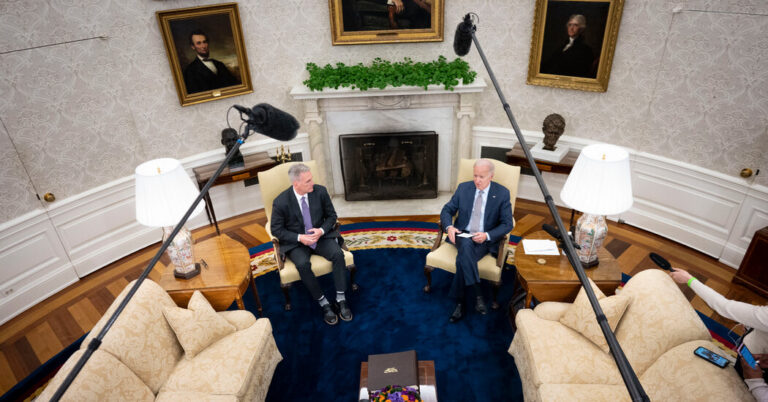
[ad_1]
The Supreme Court’s decision on Friday striking down President Biden’s student debt cancellation initiative effectively punts the issue to Congress, where it is all but certain to go unaddressed.
In overturning Mr. Biden’s $400 billion proposal to cancel student loans for 40 million Americans, the court said that he had overstepped his authority and that such an expansive program needed explicit approval by Congress.
Republicans had said they would block the proposal if the Supreme Court did not, though their multiple efforts to do so have not succeeded.
In their initial bill to lift the debt ceiling, approved along party lines in April, House Republicans included a measure that would have axed the debt cancellation plan and lifted a temporary pause on payments put in place during the pandemic. But that bill died once debt ceiling negotiations began between the White House and Speaker Kevin McCarthy.
Last month, the House passed a resolution to overturn the loan forgiveness plan using the Congressional Review Act, but it has stalled in the Democratic-controlled Senate.
Not long after, as part of the deal between Mr. Biden and Mr. McCarthy to suspend the debt ceiling, Republicans insisted on a measure requiring student borrowers to begin repaying their loans again by the end of the summer. Payments would have resumed around that time anyway, but the new law blocks Mr. Biden from extending the pause as he has several times before.
House Democrats have introduced a bill aimed at reducing student loan debt, but it has not been scheduled to be heard in committee and has little chance of making it to the floor.
[ad_2]